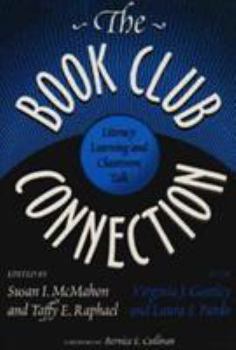The Book Club Connection: Literacy Learning & Classroom Talk
This is a comprehensive text about the beliefs, issues, and practices at the forefront of literacy education-language, ethnic, and academic diversity; authentic assessment; social construction of meaning and knowledge-explored through the lens of a cohesive instructional design, the Book Club Program. As such, it provides a well-researched pedagogical model. Commentaries by eminent literacy scholars outside the project provide an expanded perspective on the many issues raised by the chapter authors. The resulting multiplicity of voices-including those of students (the authors of Chapter 10) who were fifth-grade participants in the Book Club program-is a unique feature of this long-awaited volume.
Section I: The Book Club Program Foundations and Components - Theoretical and Research Foundations - Classrooms as Communities - Reading in the Book Club Program - When Readers Write - Contexts for Students to Lead Their Own Discussions - Section II: Extending Research on the Book Club Program - Talk About Text Among Special Education Students - Second-Language Learners in Mainstream Classrooms - The Cross-Aged Literacy Program - Assessment Research - Students Speak: Book Club from Our Perspective - Section III: Teacher-Researchers in the Book Club Program - Reflective Teaching for Continuing Development - Extensions to Early Elementary Classrooms - They Can Do It Too : Book Club with First and Second Graders - The Content-Area Connection - A Portfolio Approach to Assessment
The commentaries are written by: Gordon Wells - Carol Sue Englert - Robert Rueda - Donna E. Alvermann - Elfrieda H. Hiebert - P. David Pearson - Dorothy Strickland - Lee Galda - Barbara M. Taylor - Karen K. Wixson - Kathryn H. Au





